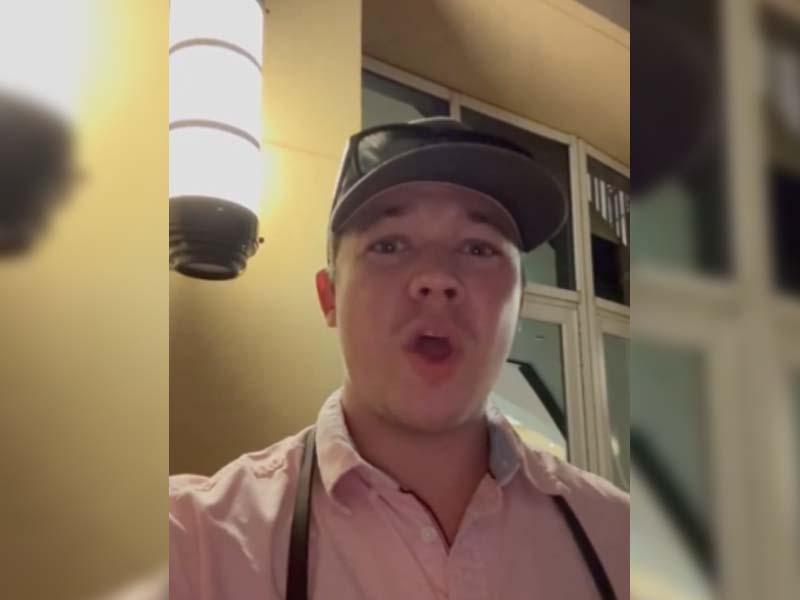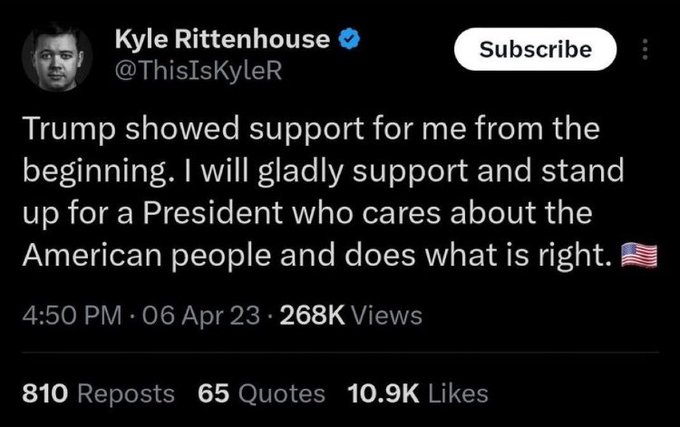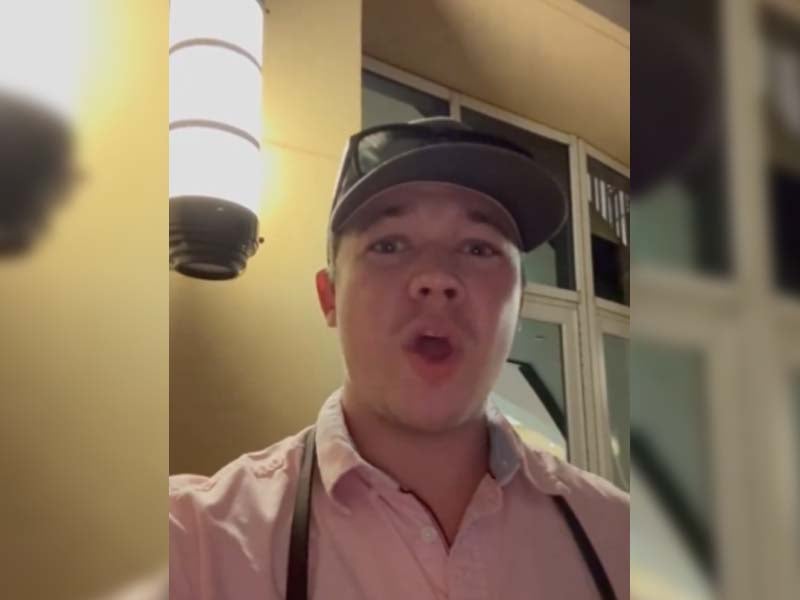
Former U.S. President Trump has stood publicly in the corner of accused Kenosha killer Kyle Rittenhouse. Today, Rittenhouse took to social media to say he would throw his 2024 Presidential Election vote in the trash by writing in Rand Paul, who is not running for office.
Rittenhouse has faced immense criticism for the statement, even being ‘ratioed’ on X.

Kyle Rittenhouse, the controversial figure from the Kenosha shootings, has publicly declared that he will not support Donald Trump in the upcoming presidential election, despite Trump’s previous backing during his trial.
Rittenhouse, who became a symbol for gun rights advocates after his acquittal, has expressed dissatisfaction with Trump’s stance on the Second Amendment, opting instead to write in former presidential candidate Ron Paul, who is not running in this election cycle.
During the 2020 riots in Kenosha, Wisconsin, Rittenhouse, then 17, fatally shot two people and injured another, actions for which he claimed self-defense. The case drew national attention, with Trump supporting Rittenhouse, hinting at the complexities of self-defense in volatile situations. This support came during a politically charged period when Trump was campaigning for re-election amid nationwide protests against police brutality.
Rittenhouse’s trial concluded in November 2021 with his acquittal on all major charges, a verdict that intensified the national debate over gun rights and vigilantism. Since then,
Rittenhouse has been active in gun rights advocacy, speaking at various events and aligning himself with Second Amendment proponents.
His decision to break away from Trump stems from specific disagreements over gun control measures implemented during Trump’s presidency. Rittenhouse criticized Trump for supporting the ban on bump stocks, a decision upheld by the U.S. Supreme Court, and for endorsing “Red Flag” laws. These laws allow for the temporary removal of firearms from individuals deemed a threat to themselves or others, without a criminal conviction—a policy Rittenhouse views as an infringement on gun owners’ rights.
Furthermore, Rittenhouse disapproved of Trump’s actions that he perceived as compromises on gun rights, such as advocating for increased background checks and discussions on raising the minimum age for purchasing firearms.
He articulated his discontent in a series of social media posts, asserting that his vote for Ron Paul is a principled stand for uncompromised support of the Second Amendment.
This announcement has not been without controversy within conservative circles, with some of Trump’s staunch supporters expressing disappointment over Rittenhouse’s decision. The young activist’s shift highlights a broader discourse on the fidelity and interpretation of Second Amendment rights within the Republican Party.
Rittenhouse’s public break with Trump also reflects the ongoing evolution of his public persona from a trial defendant to a political commentator and gun rights activist.
It underscores the complexities of political alliances and the impact of policy decisions on individual supporters. As the election approaches, his stance could influence other voters who prioritize gun rights and are evaluating the candidates’ records on this issue.
The fallout from this decision continues to stir discussions on social media and among political analysts, pointing to the intricate dynamics of endorsement and support within high-stakes political campaigns. As Rittenhouse continues to define his role in the political and public sphere, his actions and endorsements—or lack thereof—will likely remain a point of interest and debate among both supporters and critics.
By voting for Paul, Rittenhouse is allowing his vote to default to Vice President Kamala Harris, who has called for a forced government gun buyback confiscation and a ban on ‘assault weapons’.

